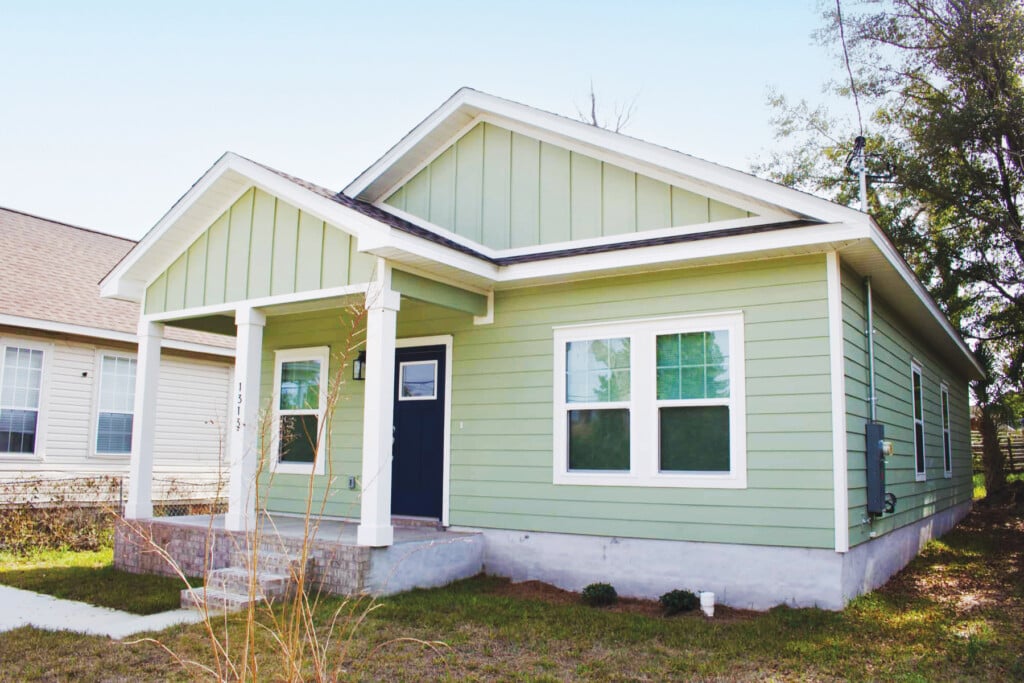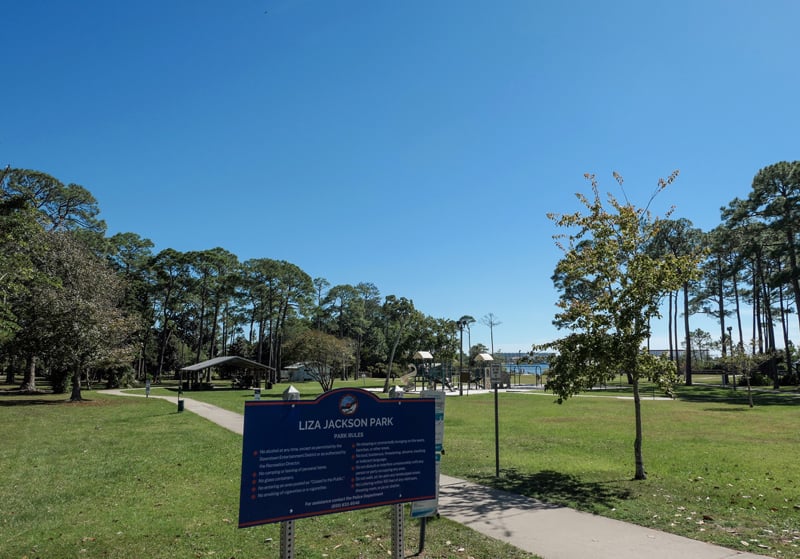La Costa Esmeralda
Grace Resendez McCaffery safeguards Spanish speakers

Grace Resendez McCaffery knows that compassion can require courage.
She is the founder of the Hispanic Resource Center of Northwest Florida and South Alabama. She is also the publisher of the La Costa Latina newspaper, organizer of Pensacola’s Latino Festival and the operator of a language bank that provides volunteer translation services.
She has received death threats twice. The first round came when she worked with emergency management to broadcast a hurricane evacuation order in Spanish.
“I know personally that some people called in speaking Spanish who were headed for a bridge that had broken during the storm,” she said. “We were able to get them off of that bridge and into a shelter. I have no doubt that we saved their lives that day.”
The second batch of threatening messages arrived following publication of the first edition of La Costa Latina, a Spanish language newspaper.
A widow and mother of two young boys, Resendez McCaffery went to the police, who encouraged her to retreat. Stop advertising their work, they advised. Don’t be a public figure. Be quiet.
She was terrified, but resolute. La Costa Latina would continue publishing and Resendez McCaffery would persist in her efforts to protect and support the Spanish-speaking community of Northwest Florida.
Years later, Resendez McCaffery said, police and first responders have come to respect her role and her work.
“Left and right, red and blue. The people who get hurt are the folks in the middle,” she said. “My conscience says I need to fix that. I know their stories. I know how they got here. I know how they’re struggling. I know the work they’ve done in our community. And I know they’re wonderful people. Are they perfect? Not any more than I am.”
Resendez McCaffery moved to Pensacola from her hometown of El Paso, Texas, in 1993. She lost her husband, who died in a car accident, just four months after their second son was born.
“I was widowed at the age of 23,” she said. “Our boys were babies. I was still growing. I hadn’t discovered myself yet at that point. And so it gave me an opportunity to really focus on something other than the hardship.”
She learned Spanish and traced her family origins to the Tarahumara, an indigenous tribe from Northern Mexico. She became part of Pensacola’s Spanish-speaking community, which grew rapidly following Hurricane Ivan in 2004.
“I was starting my career at the Red
Cross when the storm hit,” Resendez McCaffery said. “All of a sudden, there was this shift that I felt coming. I don’t remember why or how, but I remember telling folks things are going to change because I knew that these workers were going to come in.”
Migrant workers poured into the city, rebuilding infrastructure and helping Pensacola to emerge from the storm’s devastation. After the work was done, many remained, finding jobs and making Pensacola their home.
“That’s when I started the language bank,” Resendez McCaffery said. “I had already seen situations where the language barrier really was an issue of life and death for some folks.”
The language bank was a resource much needed by medical professionals, emergency responders, legal professionals and others, but it relied on calls coming in.
“It was very clear to see that we needed to get more information out,” Resendez McCaffery said about language services. “That’s when I really saw the importance of mass communication. Media can save someone’s life just by having information available. That’s where the newspaper came from.”

As part of her advocacy work in support of Spanish speakers in the Pensacola area, Grace Resendez McCaffery maintains relationships with police and first responders, works with nonprofit organizations and volunteers with the Border Servant Corps, a hospitality center for refugees released by federal authorities. Photography by Mike Fender
Resendez McCaffery uses her newspaper to reach Spanish speakers across North Florida and Southern Alabama, but it forms only part of her advocacy work.
She maintains relationships with police and first responders, hosts speakers, works with the Rotary Club and the Red Cross and volunteers with the Border Servant Corps, a hospitality center for refugees released by federal authorities.
Resendez McCaffery has been a vocal opponent of Senate Bill 1718, which invalidates driver’s licenses issued to undocumented persons by other states, creates penalties for transporting undocumented persons across state lines and requires health care providers to ask patients for their citizenship status.
“Living in the Panhandle, we don’t have the federal offices that we need so that people can continue with their process of getting their immigration situation straightened out,” Resendez McCaffery said. “Guess what? You can lose your whole case by missing an appointment. You can go to Birmingham to go to an appointment, but this law says you can’t come back.”
Resendez McCaffery worries that heated political rhetoric puts lives at risk.
“I know a lot of good people,” she said. “I do know that people want things to be better for everyone. They just don’t know how to do it. They don’t know where to pull the courage from to say so.”


